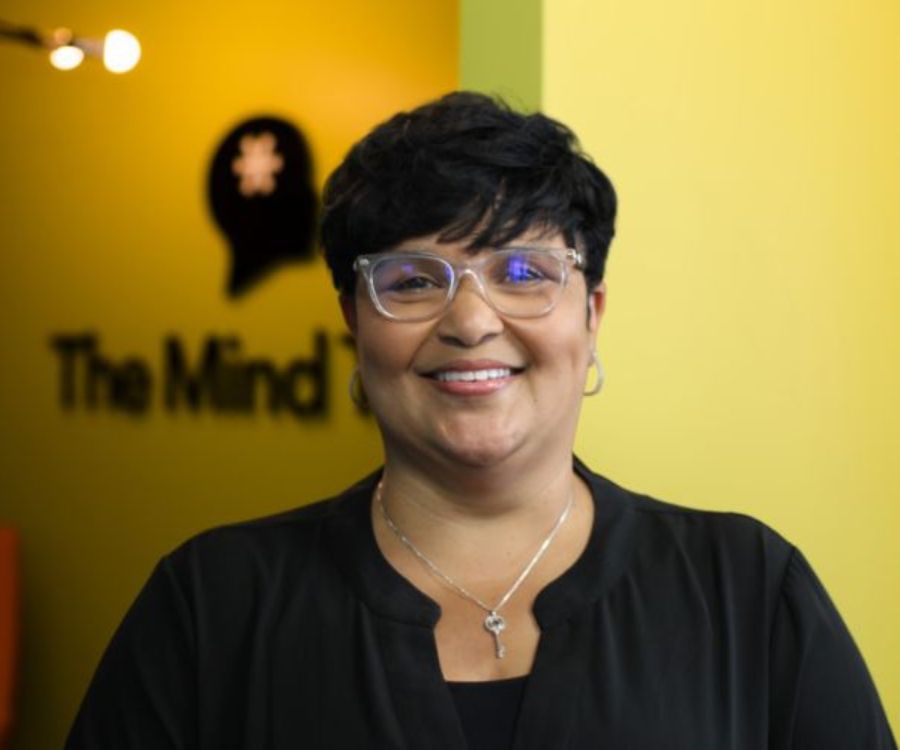Creating Access and Opportunity is Essential
By Kelli Marshall, Senior Vice President of Schools
It was 100% always my plan to become an educator. From the time I could walk and talk, I was a teacher in the making. Certainly, my parents were influential in that regard. But the biggest influence was my teachers. I had phenomenal teachers who I am confident were some of the strongest, most high-quality educators our city has ever seen.
To make sure that I was being exposed to a variety of people and perspectives, my parents transferred me from a district-run school and enrolled me into a parochial, private school in 9th grade. It was there that I became more aware of how vastly different the experience in school and life could be depending on your socioeconomic status. I’m certain my experience in the private school fueled my desire to pursue a career in public education.
The Importance of Seeing the Whole Student
I am thankful for the experiences I had while attending private school. However, the relationship that I had with my teachers was vastly different from what I had become accustomed to during my time in public schools. Teachers did not appear to be as willing to go the extra mile to ensure all students were receiving the best education possible. Perhaps it was due to the reality that the majority of their students were already destined to attend college merely because of their socioeconomic status. Regardless of the root cause, I witnessed the academic needs of my peers who were not as fortunate be neglected.
My takeaway from that experience was that creating access and opportunity is essential, especially for those students who would otherwise be denied access. But it needs to be matched with a human touch, with administrators and educators who deeply care about their students.
I have found that the most equitable environment we can provide for students is one that encompasses high expectations and nurtures their gifts. Equipping students with the skills necessary to not only exist in society but to also compete is what all students deserve.
Seeking Professional Autonomy to Serve Students Well
My professional path to that certainty took many twists and turns but it started in a local public school district. As an educator and school leader in a district setting, I learned quickly that I did not have the autonomy to make decisions that were best for my kids.
On one level, I understood the systems-level thinking and decision-making process that running a major enterprise required. However, what district administrators decided was often not what was best for my kids nor my school.
So I left and went to work at a public charter school where I felt I could truly leverage my experience on behalf of students. My time there helped me learn the importance of developing my skills in not just academics and instruction, but also the operational side of school to ensure sustainability. That’s not something I ever could have learned in a traditional district school.
Causing the Right Kind of Disruption
When I led a traditional school, my staff were given to me and they were also taken away. I had no control and could not plan or even think about what sustainability would look like. People often criticize the charter sector for disrupting education. But I would push people to recognize the needless disruption that a district causes simply because it makes decisions that prioritize a system over kids.
I do believe charter schools are disruptive. They are disruptive in the right way in the sense that they break from old, tired ways of operating that, in the end, are not serving kids effectively.
After many quality years leading in different charter school networks, I joined The Mind Trust as a means of continuing to grow and deepen my professional impact. I am fully aligned with our prioritization of school quality, leader development, and sustainability. I share the belief that a high-quality leader is the first step to building school success. Then the next step is building capacity in those high-quality leaders and in the school itself. The third and last step is obtaining and leveraging additional resources to keep the school vision and model alive.
Our work creates access and opportunity for thousands of Black, Latino, and low-income students who would otherwise be denied that access or ignored altogether.
Kelli Marshall
Money isn’t the sole resource that I’m referring to. The most valuable resource that I believe a school leader can have is the autonomy to communicate and develop a partnership with their families and school community without jumping through bureaucratic hoops. In an autonomous setting, I had direct access to my families and my families had direct access to me.
Another valuable resource that I found as a charter leader is the hiring and leveraging of staff strategically and intentionally to meet the needs of students. Without the authority and autonomy to make decisions surrounding people and their needs, a school is not really providing the service it is intended to provide.
I love working at The Mind Trust because of the population we serve and our commitment to equity. Our mission statement says it all: we strive to provide every Indianapolis student access to an excellent education. Our work creates access and opportunity for thousands of Black, Latino, and low-income students who would otherwise be denied that access or ignored altogether.

